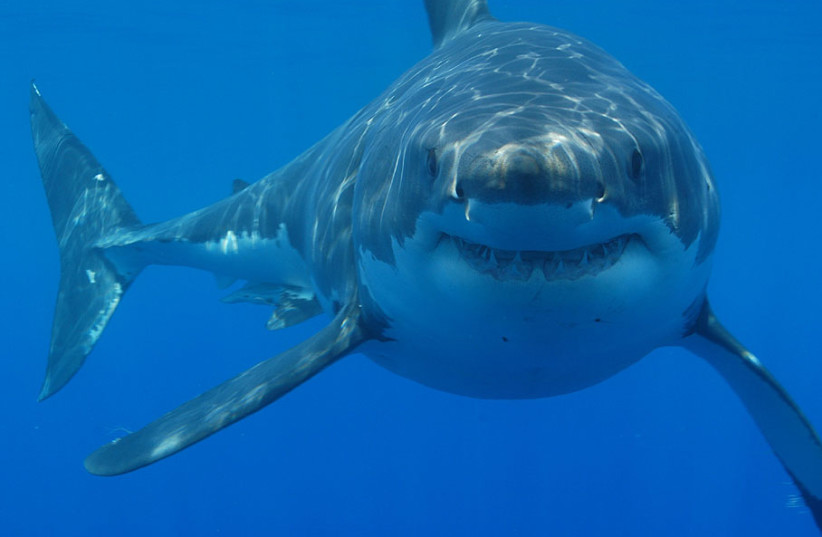The recent discovery by researchers at the University of Miami (UM) of rare deep-sea brine pools in the Gulf of Aqaba – a northern extension to the Red Sea – has excited their counterparts at the University of Haifa who found – for the first time in the Mediterranean – a similar phenomenon opposite Tel Aviv.
Dr. Yizhaq Makovsky – a geophysicist and faculty member at the department of marine geosciences and technologies at the University of Haifa who specializes in offshore exploration and development – said that he negotiated with UM experts who made the discovery near Eilat to come to his city to do joint work, but that the schedules didn’t work out. Yet he hopes such collaboration will come to pass.
“Most of life on land and the top levels of the oceans and seas get their energy from the sun,” he told The Jerusalem Post. “But as 75% of the Earth is covered with water, and a large percentage of that is very deep water with the seabed as much as four kilometers down, the sun doesn’t reach forms of life there and there is no oxygen – so alternate energy sources are needed.”
A year ago, Makovsky’s team found sharks and millions of eggs of fish in a very-rare, deep sea brine pool opposite a Tel Aviv beach. “We were surprised, because usually the sea bed is desolate with nothing living there. But if such a thing is possible, such an environment can provide food and affect all living things in the oceans and seas.
It could also tell us how salty underwater lakes hold secrets into the way oceans on Earth formed millions of years ago and offer clues to life on other planets and even may hold potential cancer-fighting compounds. Bioactive molecules with potential anti-cancer properties have previously been isolated from brine pool microbes.

Salt in these deep-sea pools produce methane, which is toxic and corrosive to the environment. But fluids are released by the springs that create nutrients for microbes and other living things that feed on them. “We did not know about brine pools at the deep waters of the Gulf of Aqaba near Eilat until University of Miami researchers made their discovery; for us, it was a black hole. It shows there are additional sources of life under the seas. We in Israel have the same abilities as the Florida team, but of course not the ship that they used.”
IN PARTNERSHIP with OceanX – an advanced exploration vessel that serves as a floating, integrated marine research platform – Prof. Sam Purkis, who chairs UM’s department of marine geosciences, and his team made their discovery more than 1,770 meters under the sea surface. They used a remotely operated, highly equipped underwater vehicle.
Their research has just been published in Nature Communications’ Earth and Environment under the title “Discovery of the deep-sea NEOM Brine Pools in the Gulf of Aqaba, Red Sea.” They named the pools NEOM, a city being built in the Tabuk Province of northwestern Saudi Arabia that will incorporate smart city technologies and function as a tourist destination. The site is north of the Red Sea, east of Egypt across the Gulf of Aqaba and south of Jordan.
“Until we understand the limits of life on Earth, it will be difficult to determine if alien planets can host any living beings”
Prof. Sam Purkis
“Until we understand the limits of life on Earth, it will be difficult to determine if alien planets can host any living beings,” said Purkis. “Our discovery of a rich community of microbes that survive in extreme environments can help trace the limits of life on Earth and can be applied to the search for life elsewhere in our solar system and beyond,” he noted.
“We were very lucky,” said Purkis. “The discovery came in the last five minutes of the ten-hour ROV dive that we could dedicate to this project.”
“The discovery came in the last five minutes of the ten-hour ROV dive that we could dedicate to this project”
Prof. Sam Purkis
Located close to the coastline, these extremely salty, zero-oxygen pools preserve information on tsunami, flashfloods and earthquakes in the Gulf of Aqaba that took place thousands of years ago. There are many faults and fractures in the sea bed associated with the tectonics of the region in this area.
Earlier this year, Purkis and team discovered evidence of a 500-year-old undersea landslide that likely created a sizable tsunami in the region, that could have implications for coastline development in Egypt and Saudi Arabia.
